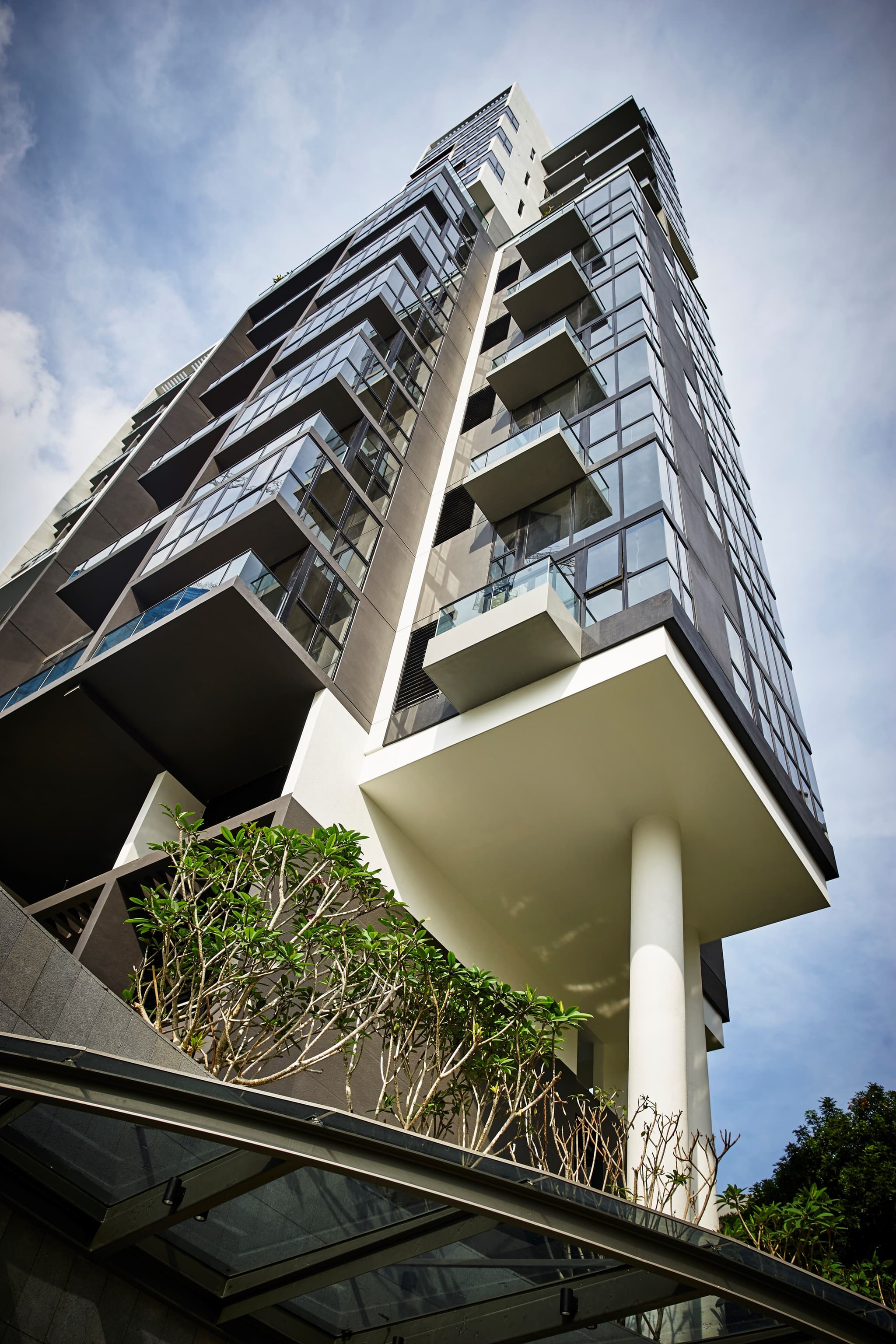Building a Sustainable Tomorrow

We lead with purpose, embedding sustainability across every part of our business to drive long-term value and positive impact.
At GRC, sustainability is more than a goal but a guiding principle that informs how we build, operate, and grow. We recognise the increasing importance of strong environmental, social, and governance (ESG) performance to our stakeholders, and we are committed to advancing responsible business practices that support long-term value creation.
As a leader in construction and property development, we are acutely aware of the resources our industry consumes and the impact we have on the environment and society. That is why we focus on enhancing energy efficiency, conserving water, managing waste responsibly, and reducing emissions across our value chain. From project planning to execution, sustainability considerations are embedded at every stage.
We place the highest priority on workplace health and safety, striving to ensure the well-being of our workforce and the communities we operate in. Data protection and cybersecurity are also critical pillars, underpinned by robust internal systems to safeguard customer and stakeholder information. In line with our values, we uphold a zero-tolerance policy towards bribery and corruption, and strictly comply with all relevant economic, labour, and social regulations.
Our sustainability efforts are aligned with the United Nations Sustainable Development Goals (SDGs), and we have identified the areas where we can make the most meaningful impact. Through regular engagement with stakeholders and ongoing assessment of material ESG topics, we continue to refine our approach to meet evolving expectations and global standards.
Guided by accountability: A structured framework for driving sustainability across all levels
At GRC, Sustainability is embedded in our corporate governance framework, ensuring that our environmental, social, and governance (ESG) practices are strategically aligned and effectively implemented. The Board of Directors is committed to sustainability, good governance, and risk management, providing strategic direction on sustainability objectives, evaluating potential risks including climate-related risks and opportunities, and approving material ESG factors and metrics for reporting. The Board also oversees management’s monitoring of these factors through regular reviews of performance indicators, targets, and progress.
Guided by the Board, the Group’s Sustainability Management Committee (SMC), comprise by the CEO with the CFO and CCO as members, supervises the development, adoption, and implementation of sustainability strategies including climate-related initiatives. The SMC provides regular progress updates to the Board and is supported by a Sustainability Working Committee of senior business leaders and function heads. This structure ensures cross-functional collaboration across departments bringing diverse operational insights into the evaluation of sustainability risks and opportunities.
A dedicated project team further supports execution across by coordinating reporting, gathering performance data, monitoring key indicators, and engaging with internal stakeholders to ensure accurate and timely sustainability reporting. Our governance framework is reinforced through regular committee meetings, performance reviews, and ongoing training for Board members on evolving sustainability topics. Together, these efforts promote accountability, transparency, and sustained progress toward GRC’s long-term sustainability goals.
Focusing on what matters: understanding our true impact
We are committed to addressing the most impactful environmental, social, and governance (ESG) issues through a robust materiality assessment process guided by the Global Reporting Initiative (GRI) standards and principles.
Since 2017, we have conducted regular materiality assessments to identify our significant impacts on the economy, environment, and society. Senior management representatives across all business units and functions participate in workshops led by external sustainability experts to review stakeholder concerns and critical sustainability issues related to our operations.
In FY2024, we deepened our stakeholder engagement by collaborating closely with customers, employees, suppliers, shareholders, and regulators to better understand their concerns and expectations. This comprehensive engagement allowed us to identify and prioritise the key ESG factors most relevant to our business and stakeholders. These material topics were carefully reviewed and validated by our Board of Directors to ensure alignment with GRC’s strategic goals and the dynamic industry landscape.
Our updated material topics, their areas of impact, and our management approach will be transparently detailed in our next Sustainability Report, reflecting GRC’s ongoing dedication to sustainable business practices and responsible growth.
Collaborating for a Greener, Brighter Future
Stakeholder engagement is central to shaping GRC’s sustainability journey. We recognise that open and continuous communication with our stakeholders is essential to understanding their needs, expectations, and concerns. Our diverse stakeholders include customers, employees, contractors, suppliers, investors, community members, industry partners, regulators, and the Board of Directors.
Throughout the years, GRC maintained active dialogue across multiple platforms – ranging from face-to-face meetings and surveys to vendor assessments, employee feedback sessions, virtual inspections, and regular reviews. These formal and informal engagement channels enable us to gather valuable insights, address issues promptly, and foster mutually beneficial relationships.
By actively listening to and integrating stakeholder feedback into our decision-making processes, we ensure our sustainability strategies are relevant, impactful, and aligned with stakeholder priorities. Our commitment to transparency and responsiveness reinforces trust and supports our long-term vision for sustainable success.
To learn more about our stakeholder engagement approach and outcomes, please refer to our latest Sustainability Report.
This table presents quantitative data that reflects our performance in areas that have been identified as material to our businesses and stakeholders.
More performance data, including qualitative data on each of our material issues, is available in the latest Sustainability Report.
Sustainability Performance for Our Construction Group
| Material ESG Factors | 2022 | 2023 | 2024 |
|---|---|---|---|
| Environmental | |||
| GHG emissions(1) (tCO2e) | 6966 | 6477 | 7785 |
| GHG emissions intensity (tCO2e per $'million of revenue) | 11.1 | 12.4 | 13.9 |
| Energy(2) consumption (GJ) | 88938 | 81642 | 99467 |
| Energy consumption intensity (GJ per $'million of revenue) | 142 | 157 | 177 |
| Waste(3) generation (tonnes) | 11648 | 10237 | 8158 |
| Waste generation intensity (tonnes per $'million of revenue) | 18.6 | 19.6 | 14.5 |
| Water withdrawal (m3) | 283426 | 275082 | 285730 |
| Water withdrawal intensity (m3 per $'million of revenue) | 452 | 528 | 509 |
| Social | |||
| Average training hours per employee | 8.5 | 7.4 | 11.6 |
| Employee turnover rate (%) | 24.4 | 20.6 | 19.4 |
| Fatal injury rate(4) | 0 | 0 | 28 |
| Total workplace injury rate(5) | 193 | 141 | 449 |
| Total recordable incident rate(6) | 0.14 | 0.09 | 0.28 |
| Governance | |||
| Regulatory Compliance (significant incident of non-compliance)(7) | 0 | 0 | 1 |
| Data Privacy (incident of non-compliance or data breach) | 0 | 0 | 0 |
| Anti-corruption (incident of fraud or corruption) | 0 | 0 | 0 |
Notes:
- GHG emissions include Scope 1 and Scope 2.
- Energy consumption from purchase grid electricity and fuel (diesel and petrol).
- Non-hazardous wastes.
- Based on Singapore Ministry of Manpower’s definition, Fatal injury rate = (Number of fatality as a result of work-related injury/Number of Employed Person) x 100,000 Employed Person.
- Based on Singapore Ministry of Manpower’s definition, Total workplace injury rate = (number of fatal and non-fatal workplace injuries/Number of Employed Person) x 100,000 Employed Person.
- Based on SASB IF-EN-320a.1, Total recordable incident rate = (Number of recordable incident/Number of hours worked) x 200,000 hours worked.
- Significant means incident that has consequent of a compound fine of $100,000 and more or stop order of 7 days and more issued by authorities.
GRC Limited
12 Tai Seng Link #08-01
Singapore 534233

